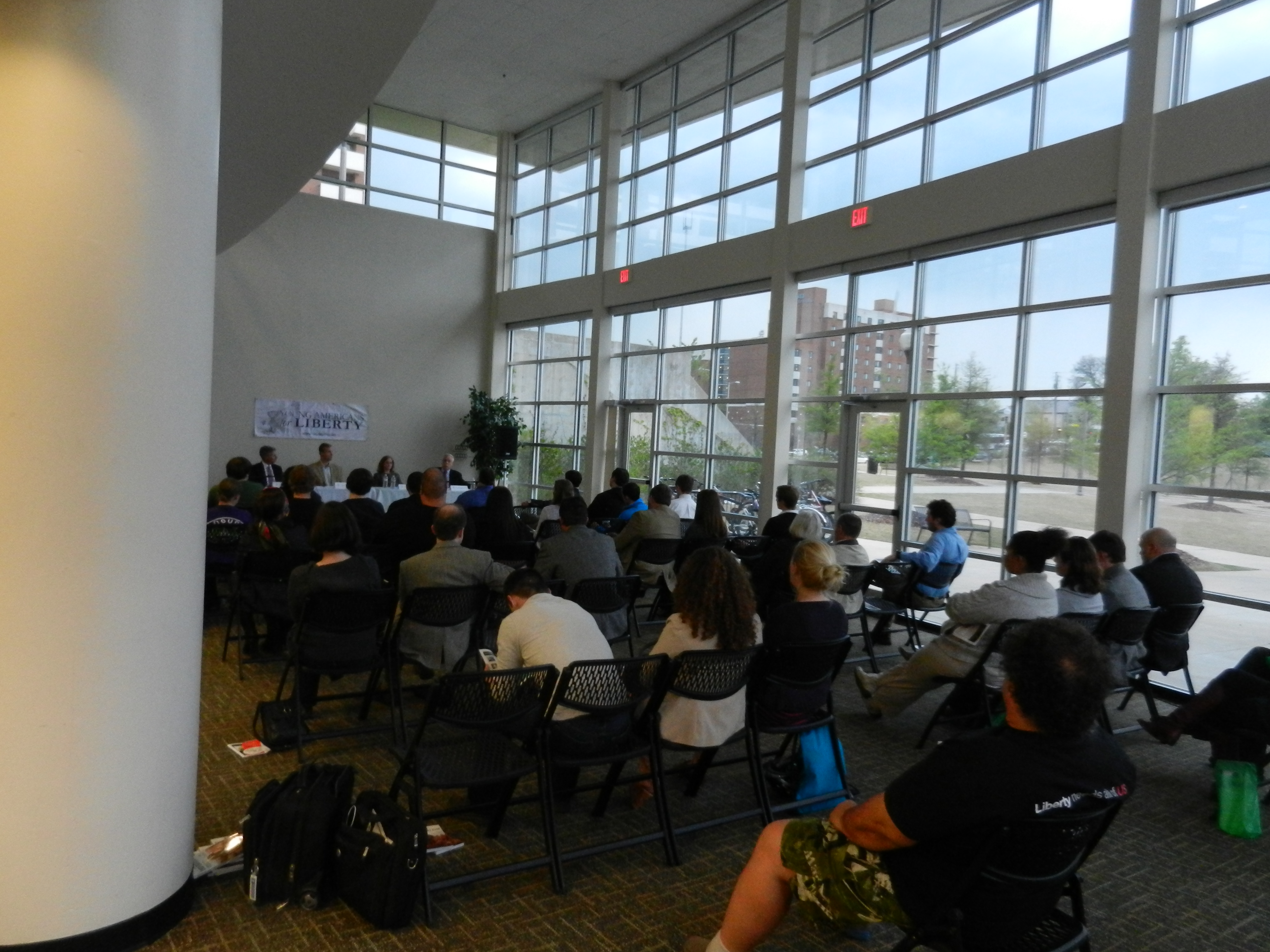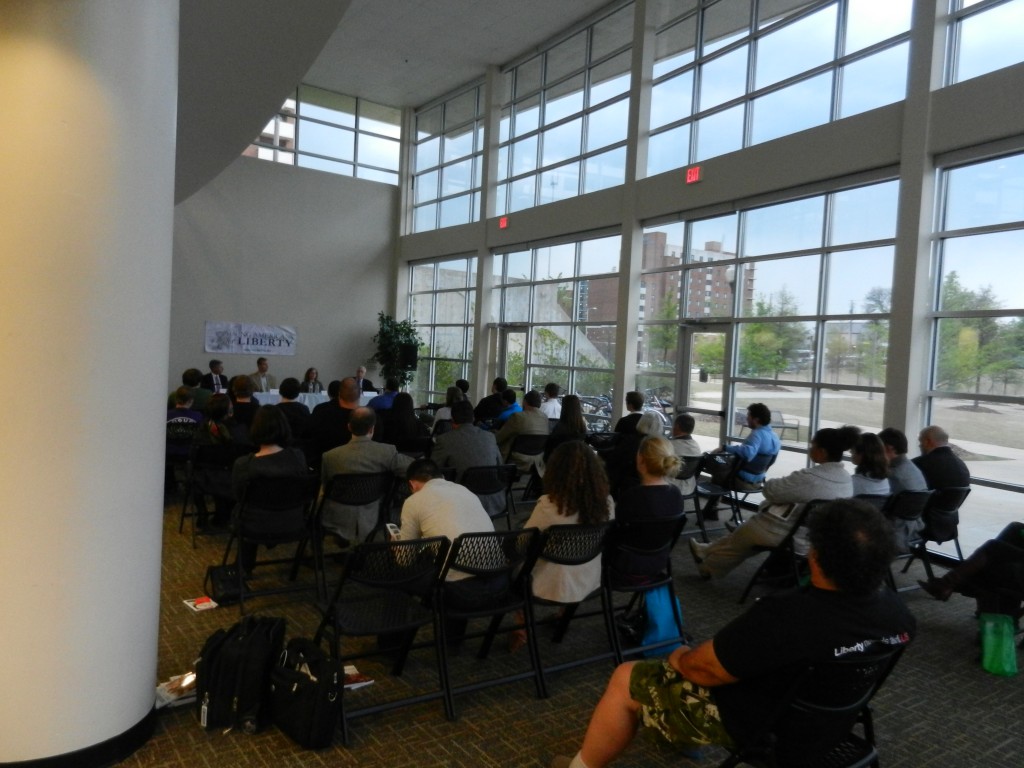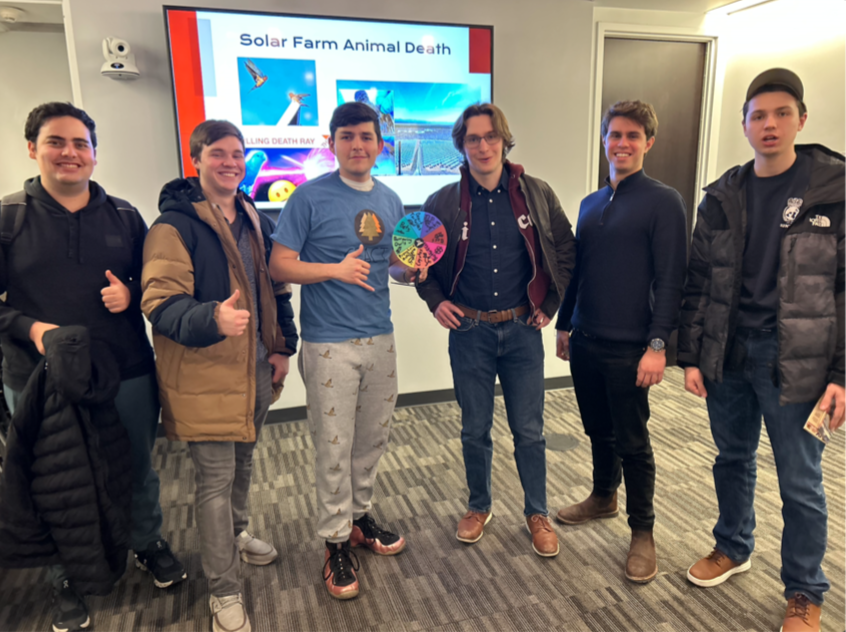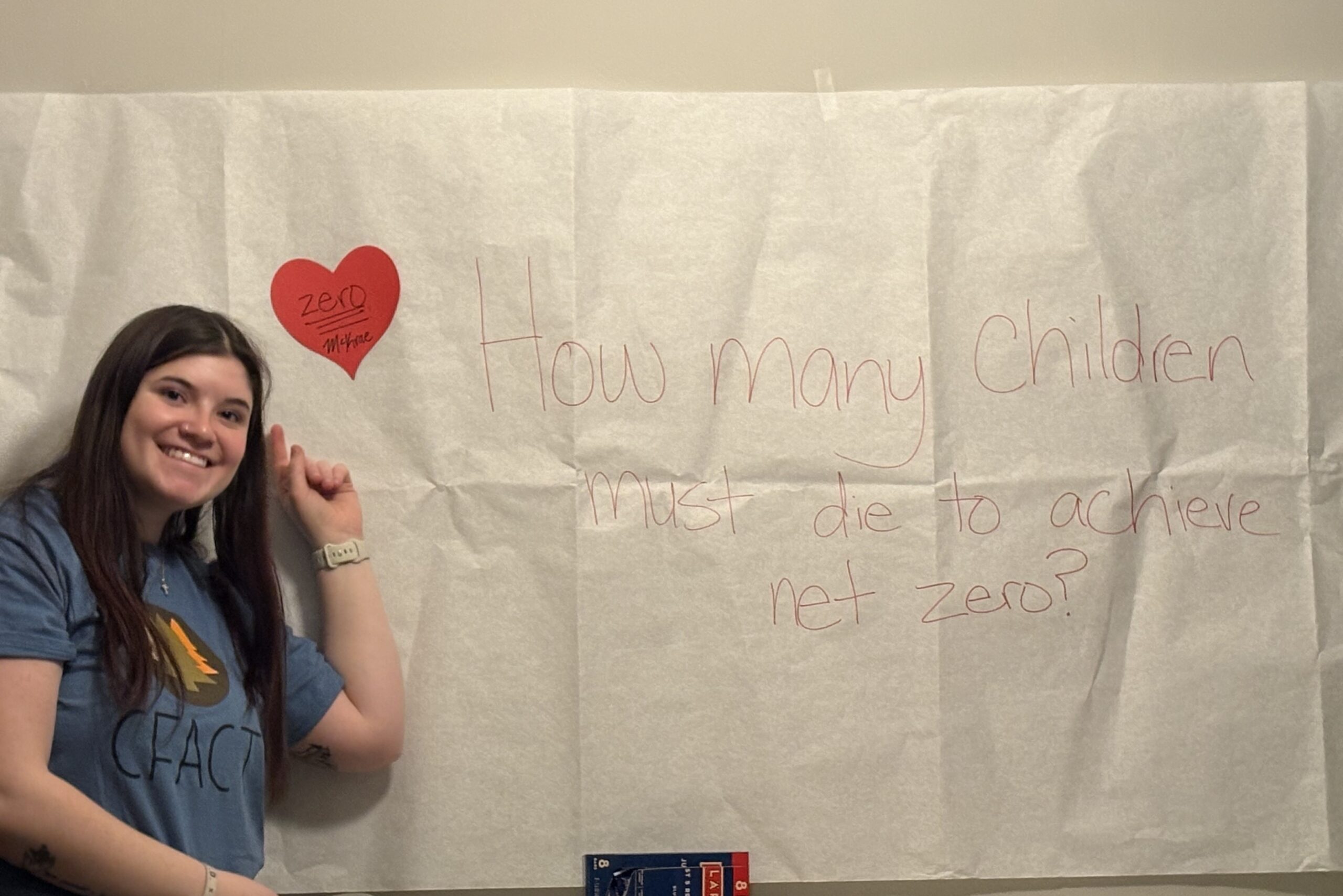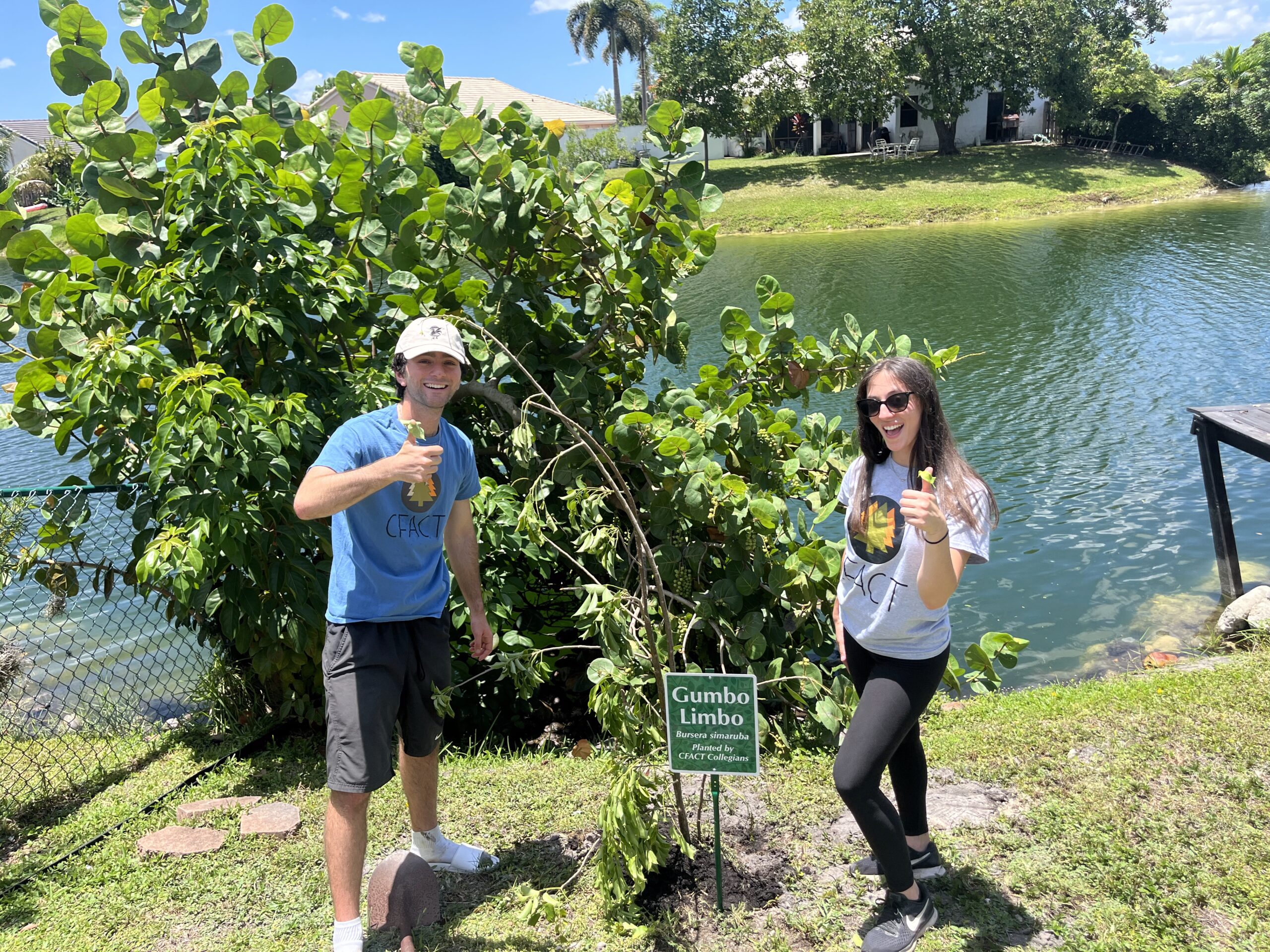By start time, there was not a seat left in the room and many had to stand in the back to see the following discussion.
It was at 6:00 PM on Tuesday April 8th, that the University of Alabama – Birmingham (UAB) chapter of the Young Americans for Liberty hosted a debate on the issue of “Sustaining Liberty: A Panel on the Environment in a Free Society.”
The panel included:
- CFACT’s senior policy advisor and author, Paul Driessen
- Gary Johnson – former governor of New Mexico and 2012 Presidential candidate
- Cole Walker – Chairman of EDT Energy, a small business providing energy solutions for many clients
- Stacie Propst – Executive Director of GASP, an organization dedicated to reducing air pollution.
As each speaker took the stage, they prepared for what was surely to be a great evening of conversation and debate over the issues of environmental stability, global warming, reducing carbon emissions, and potential incentives for reducing one’s “footprint.”
Haley Hix, a student who founded Chargers for Sustainability, served as the moderator for the debate.
The format of the debate allotted several minutes for each panelist to lay out their argument for how government should interact with the environmental marketplace and how it plays a role in “sustainability.”
Governor Johnson stated that government should not play a role in energy regulation, but also maintained that the EPA serves a positive purpose as a means to curbing carbon pollution.
Cole Walker focused his introduction on the importance of mentoring entrepreneurs and small businesses on renewable energy solutions. If viable, this small-scale operation could work to create market forces that would then lead to technological innovations, or in the context of this discussion, sustainability.
Stacie Propst revealed she strongly believes in many of the commonly-held beliefs of the environmental Left. She maintained that while she supports natural gas, renewable energy is in dire need to reduce the amount of carbon and air pollution harming communities.
CFACT’s Paul Driessen had the opportunity to address the standing-room only crowd, and he chose to focus on the fact that government serves no place in the environmental discussion. In fact, government has only ever made sustainability more difficult by favoring certain industries over others. Government cannot innovate, it can only control.
Following the introductory section, each panelist was asked a question from the moderator that served as the catalyst to a panel-wide debate. The discussion was engaging, and each member offered unique insight from their respective backgrounds on the relationship between governments and the environment.
All experts agreed throughout that in terms of the government, there are many bad actors that are involved, and this hurts the overall mission of a positive, fair regulatory agency. Driessen took a strong stance on this argument, stating that beyond the bad actors, the government needs to consider not only the positive elements to creating, defining, and implementing regulations, but also the negative effects. They might find, as is true for many of the current regulations, they do more harm than good for the average American.
Going even further, Driessen argued that government agencies need to comprise more than those who simply agree with the same philosophy. The government, in the context of these agencies, needs to encompass minds from every region of the country, including academics, regulators, citizens impacted by action, and even those who stand against the majority opinion.
Energy was also touched on briefly, with discussion over established energy sources, such as coal and oil; and ethanol and other renewable forms of energy as possible alternatives. Some, such as Walker and Propst, centered their discussion around the monopolies present in most states on energy distribution. Johnson focused on the negative effects of ethanol when comparing amount of energy produced to rising food costs and land mass necessary for viability. Driessen took a similar stance, stating that the “launch of businesses and enterprises is largely based on inexpensive access to oil and natural gas.”
Every panelist agreed with increasing natural gas production, although Propst noted concern for potential environmental effects of fracking.
Natural gas, a key tenant of the REAL Energy, Not Green Energy campaign, is one process by which the United States could foster enormous economic growth. Through the jobs created in the actual industry, to reduced energy costs for average consumers, the potential for creating a new wave of activity in the economy grows with its acceptance as a safe form of extraction. This would mean huge opportunities for college students.
As the debate continued, the conversation shifted more towards climate change and its impact on the earth. Driessen certainly stirred the debate by taking the stance that while the climate is, indeed always changing, it is not a result of human-action. Every other panelist held the belief that “global warming” was happening, although they did not appear unconvinced after Driessen presented the myriad of evidence pointing to the contrary.
In response to a question from the audience about the possibility of ‘global cooling,’ Propst was not to be told otherwise. She stated, “the media has a tendency to give voice to two sides, if there are ‘two sides,'” before claiming that this was the problem in the first place. She continued, noting how the evidence is clear and that it should not be questioned.
Despite the contentious side debate that took place between Propst and Driessen, the event ended on a positive message, with Walker’s well-stated message, saying that in life, we must not be wasteful. This should be so for everything that we do. It needs to be a mindset, such as in how one views their community, their need to do good, and frankly, take pride in their actions.
